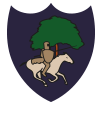Music
Intent
At Tubbenden, we ensure that all children have access to not only the statutory academic Music curriculum (as specified by the National Curriculum with support from the Model Music Curriculum) but also many other opportunities to further their musical studies and engage with music in a way that will support them academically, culturally and socially.
In both Key Stage 1 and Key Stage 2, our Music scheme incorporates singing and performance on other instruments to allow children to develop their skills and apply their knowledge. Through listening and appreciating a variety of genres, children at Tubbenden will gain a better understanding of not only how music is made now, but who has made it historically and how it has evolved into the forms it takes today. Children in Key Stage 2 will also be taught to use and understand staff notation, as well as experimenting with other ways of writing down musical ideas. Across the school, experimenting musically is key – within our Music curriculum, there is scope for children to create and play with musical ideas (referred to as the inter-related dimensions of music) in order to learn about them, compose with them and make progress in each of them as they accumulate musical experience and expertise through their primary school journey.
Implementation
While music can be used across the wider curriculum as a helpful tool to aid learning generally, it is critical that Music is recognised in its own right and taught accordingly. At Tubbenden, we benefit from the expertise of a specialist music teacher to deliver our own bespoke scheme (derived with support from the popular programme Music Express) which is carefully structured to provide inclusive steps of progression for each child’s musicianship in the key areas of singing, playing an instrument, listening and evaluating, composing and performing, and understanding the elements of music, its language and its history. The knowledge and skills of the curriculum are delivered via weekly lessons by the music specialist, but these are also supplemented in other ways, such as our singing assemblies for all children and class teacher-led musical activities. Outside of the classroom, there are clear and celebrated opportunities for every student to perform musically from EYFS to Year 6, including an infant nativity, Year 3-5 Christmas musical and a Year 6 summer show, all of which encourage and cultivate musical learning. We also take advantage of wider opportunities provided by the local music hub, such as djembe learning in Year 2 and recorder learning in Year 3 (where the score reading element is introduced) which support our musical curriculum. Alongside these are further musical avenues for children to explore voluntarily, such as the orchestra, infant choir and junior choir, which provide additional practice and performance opportunities in which learners can develop their skills.
Impact
Children at Tubbenden will engage with a rich musical curriculum at Tubbenden, and their skills and knowledge will be nurtured to ensure that progress is not only made but maintained and built upon continually. Ongoing assessment of children’s musical skills will be made, supplemented with half-termly (or in the case of longer projects, termly) summative evaluated performances to display and record musical progress. Children at Tubbenden also have specific Music books so that they can write in a unique space in music lessons; this also allows for formative assessment of musical learning where appropriate. By the end of their time at Tubbenden, our children will have accrued not only knowledge about music but developed the skills to understand music, appreciate music and make it themselves. Above all, children will have experienced and enjoyed a wealth of music in a number of ways at their time at our school and this, combined with the rigour of our academic programme, will equip them to explore this wonderful, vital and unique subject in their own way.

